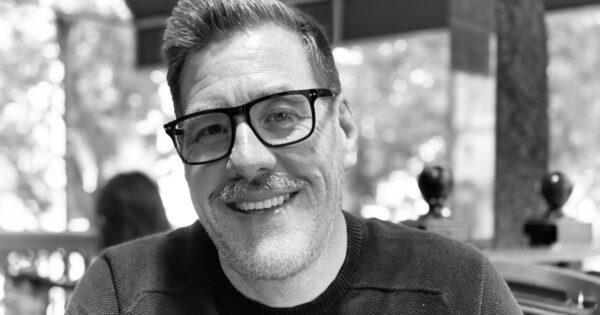
Your favorite social media event is heading back to NYC this April 9–11! Join Social Media Week with marketing leaders and content creators to stay ahead of trends in 2024. Register now to save 50% on your pass.
When Kris Saim told his agency that he had stage four colon cancer, he was met with the stability that treatment had taken from him and the freedom to reroute his career.
“To just shift your career at the age of 50 is almost unheard of,” said Saim, who has pivoted from a client partner to an organizational development role defined by mentorship at full-service agency Gale. “Gale was better for me this past year than chemo was.”
But Saim knows this dynamic is rare, and he hopes the workplace support he has received from his agency can be a model for other employers to create safer spaces—especially when one in two people are diagnosed with cancer in their lifetime.
Saim’s transparency comes at a time of heightened conversation around working with cancer in the advertising space. Earlier this year, Publicis Groupe found that 92% of patients say workplace support positively impacts their health, but just 50% feel comfortable revealing their diagnosis to their boss in fear of losing their job.
The holding company’s Working With Cancer pledge, which launched at Davos earlier this year, covers job and salary security for at least a year, personalized career support, trained peer support and flexibility for caregivers. Inspired by the experience of Publicis Groupe CEO Arthur Sadoun, Working With Cancer has signed up partners including Disney, Google, McDonald’s and Omnicom.
The accompanying campaign, which won a Grand Prix at Cannes Lions, translates the deep emotional toll that comes with hiding a diagnosis at work. It includes lines like, “More afraid to lose his job than his life.”
While the pledge is a much-needed step, Saim added that crafting the safest and most fulfilling work environment is both a personalized and ongoing conversation that people with cancer should not always be tasked to start.
“Somebody with cancer is a great person to start the conversation, but even an ally or a caregiver can do that,” he said. “With anything that falls under that DEI umbrella, increasing that sense of belonging is going to be a win for your organization.”
Simplifying transitions
Saim’s diagnosis of stage four colon cancer with lung metastasis comes on the 10 year anniversary of his first diagnosis of stage three colon cancer at 38.
Beyond defying one of the potential scenarios those fighting a disease prepare for—”What will I do when I lose my job?”—Gale simplified his transition back to work. Instead of meeting Saim with mountains of paperwork, he is grateful for the agency’s ability to free him from additional stressors. Saim emphasized that unlimited sick time is an invaluable benefit, as a trip to the doctor should not be considered an earned vacation.

